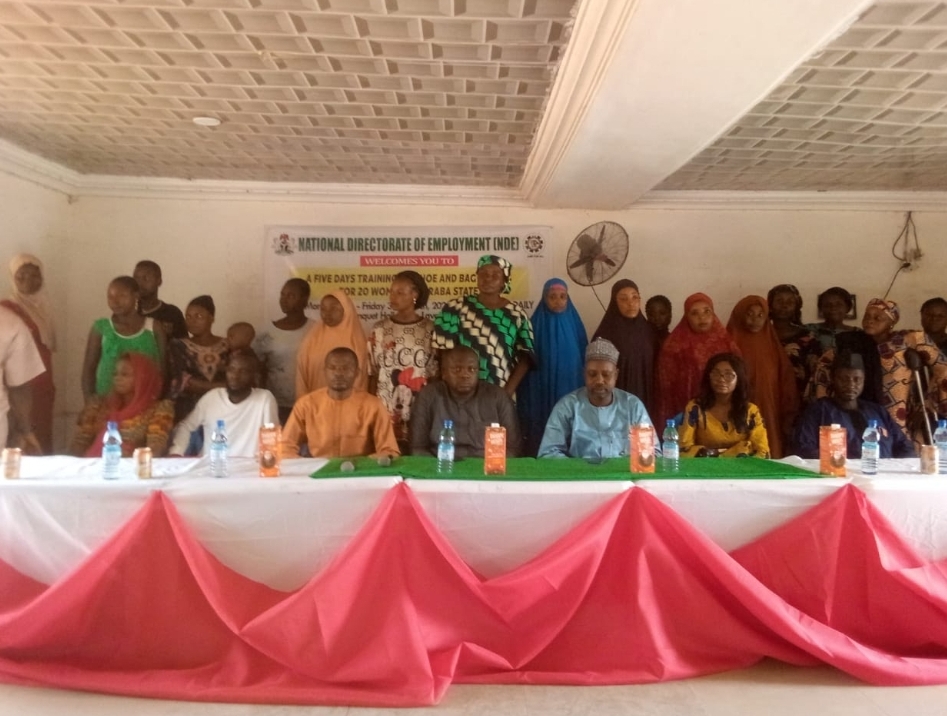JALINGO—The National Directorate of Employment (NDE), on Monday commenced a five days training for women on shoe and bag making in Taraba state.
Alhaji Danjuma Shehu, the NDE state coordinator noted at the opening ceremony of the training in Jalingo that the idea was to boost the capacity of women in job creation and reduce the unemployment rate in the country.
According to him, the training was president Muhammadu Buhari’s efforts through the NDE to tackle the growing unemployment rate, as it became necessary due to the continue increase in hardship which women were seems to be the most vulnerable.
Danjuma noted that the exercise was targeted at training 20 women, just as the directorate has made available plans to empower serious participants with 20,000 to begin their businesses after the training.
“This training is president Muhammadu Buhari’s efforts through the NDE to tackle the growing unemployment rate in Nigeria and it became necessary due to the continue increase in hardship which women are believed to be the most vulnerable. The NDE aim of training the women today is to make them self-reliance and to become employers of labour.
“Our targeted participants for this training is 20 women, the directorate made plans to empower serious participants with 20,000 to begin their businesses after the training” Danjuma noted.
Earlier, Miss Indo Siman Ambitaa, the Women employment branch officer of the directorate, while encouraging the trainees to take the training seriouse said, it was an initiative of the directorate to create job opportunities for women, make them self-reliance and employers of labour.










